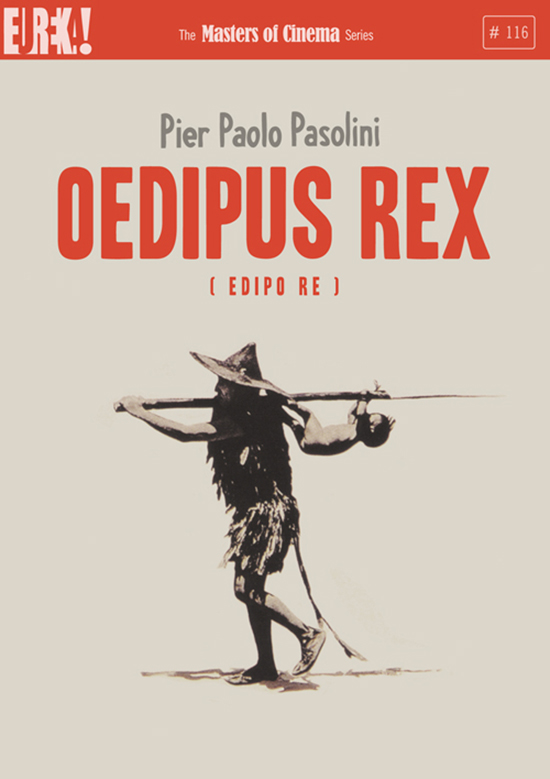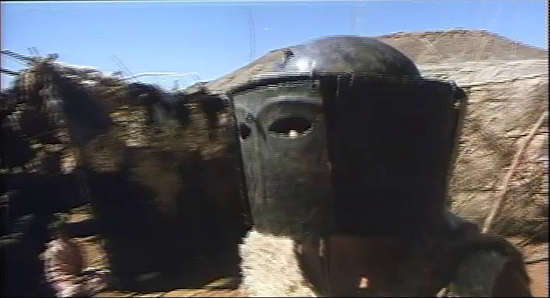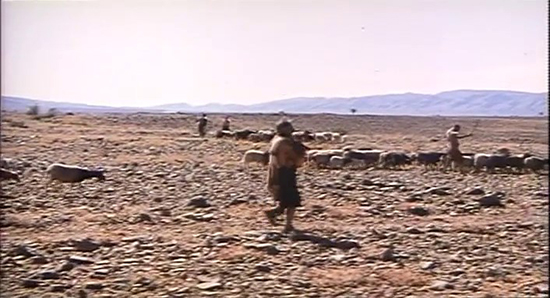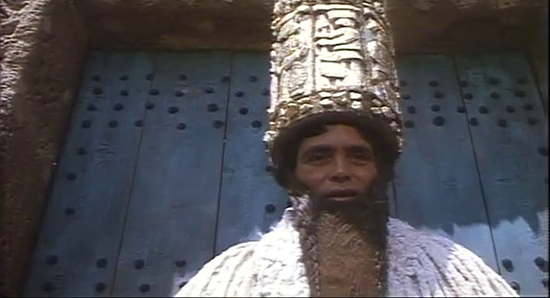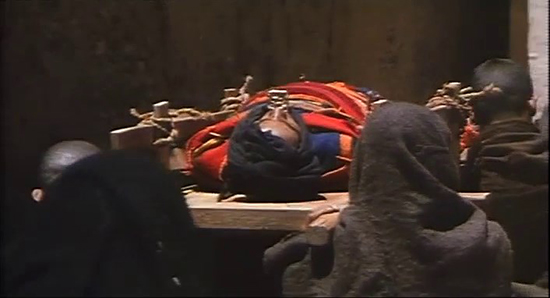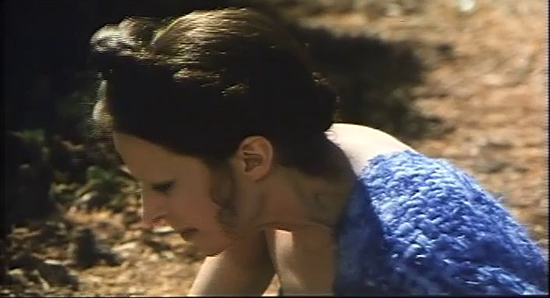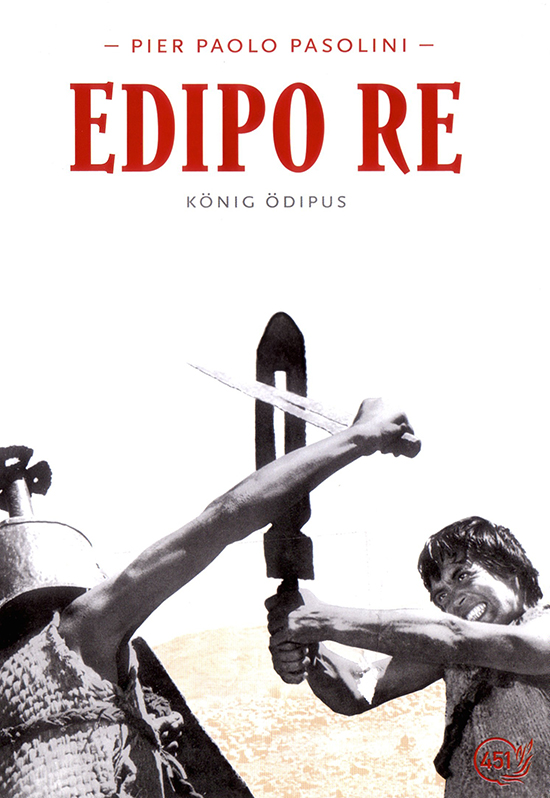SYNOPSIS:
In pre-war Italy, a young couple have a baby boy. The father, however, is jealous of his son – and the scene moves to antiquity, where the baby is taken into the desert to be killed. He is rescued, given the name Edipo (Oedipus), and brought up by the King and Queen of Corinth as their son. One day an oracle informs Edipo that he is destined to kill his father and marry his mother. Horrified, he flees Corinth and his supposed parents – only to get into a fight and kill an older man on the road…
REVIEW:
The odds are high that if I was to mention filmmaker Pier Paolo Pasolini, the first thing that would pop into your head would be his most famous/infamous film, Salo, or the 120 Days of Sodom, and probably for good reason: it’s a very upsetting, sadistic, controversial, and memorable film. Unfortunately, it also overshadows his other work, which includes 55 writing credits and 26 directing credits, and while Salo might be the stand out title, it’s not Pasolini’s only disturbing film. In Porcile, he tells two stories, one about a cannibal and another about a character who prefers the company of a pig over a human. He heavily satirizes religion in The Decameron, and upsets everyone with his absurd, symbolic tale of a visitor seducing each and every member of a family in Teorema. But, while it might not be as visually upsetting as so many other films, Pasolini’s 1967 film, Oedipus Rex (aka Edipo Re), literally has at its heart one of the most disturbing legends in human history.
Whether it’s coming from the plays of Sophocles, the lyrics of Jim Morrison, the psychology of Sigmund Freud, or the films of Pasolini, the story of Oedipus remains fairly consistent: it is about so many things, one of which is destiny – in this case, destiny involves killing your father and falling in love with your mother (does a story from 5th century BCE require a spoiler alert?). A baby is born, and almost immediately the father begins to worry that his new son is a threat to his life and his manhood, so he has a servant take the baby to the desert and kill him (check the symbolism of the child’s hands and feet tied to a pole here). However, who could kill a baby? Instead, he leaves the baby for someone else to care for. Soon, the baby is “adopted” by the king and queen of Corinth, given the name Edipo, and raised as heir to the throne.
Fast forward to a grown up, restless Edipo (played by Franco Citti, a Pasolini regular as well as Calo from The Godfather). He decides to travel in hopes of learning about himself. At one stop, an oracle tells him his future: he will kill his father and have sex with his mother. Disappointed with the news, he wanders on, choosing his path on the fly, meeting people and learning about life in a very Siddhartha kind of way. One day, he comes across a caravan of wealthy travelers. Feeling slighted and ridiculed by their jeers, he ends up fighting and killing all of them but one. At his next stop, he defeats a “sphinx” and essentially saves a village, winning the kingdom’s throne and with it the hand of the widowed queen (played by Silvana Mangano, a one-time Miss Rome) in marriage. Normally, this would seem like a pretty good deal, but maybe not this time…
As usual, Pasolini manages to turn an ugly and disturbing story into a thing of art and beauty. The performances are great, pretty much across the board, and the settings look fantastic, whether within the kingdom or on the road between villages (filming took place at various sites in Italy and Morocco). The story is told in a way that draws the audience in, even those who are very familiar with the legend it is based on, but faithful enough (in my opinion) not to upset the purists. Oedipus Rex is a story full of action and intrigue, sex and violence, and enough taboo breaking to still make a desensitized 21st century audience squirm just a little bit as the details all unfold.
Oedipus Rex is probably one of Pier Paolo Pasolini’s more accessible and easily understandable films, but that certainly doesn’t mean it doesn’t have many layers just below its surface. Whether delving into the symbolism of child abuse throughout the film, or discussing the hero’s journey, or looking at the film in a historical context, this is one that can be enjoyed and talked about on a variety of levels. This is a very well made film, another superbly written and directed effort by Pasolini (there’s probably a reason his name always comes up in “best filmmakers of all time” discussions). This might not appeal to the wide horror audience, but I think there’s a section of fans who will love the tension and battles and touch of perversion on display here.
 Horror News | HNN Official Site | Horror Movies,Trailers, Reviews
Horror News | HNN Official Site | Horror Movies,Trailers, Reviews
